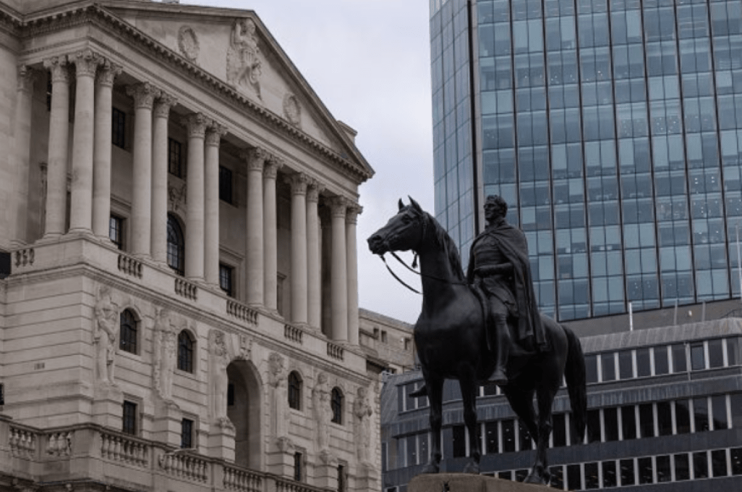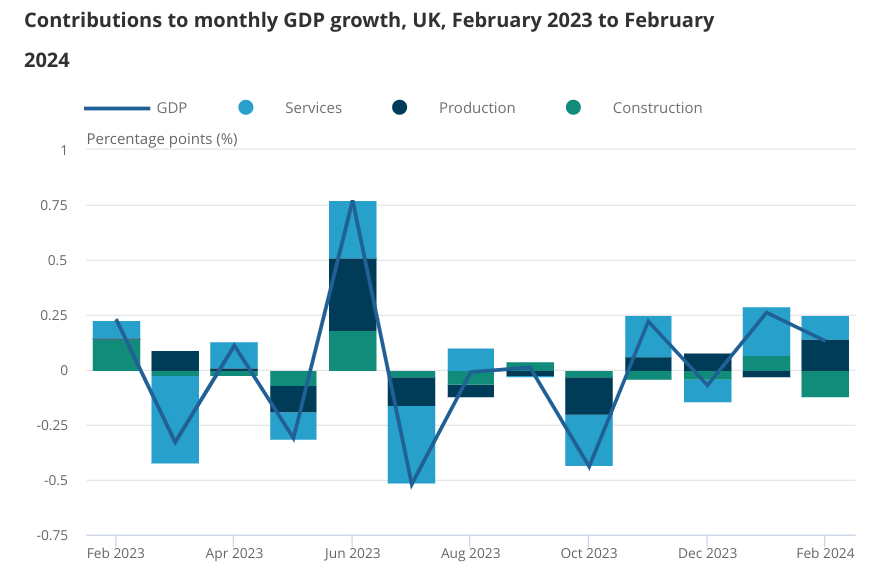UK economy grows in February as recovery gathers steam

According to figures from the Office for National Statistics (ONS), the UK economy grew 0.1 per cent in February, in line with economists’ expectations. This followed an upwardly revised 0.3 per cent expansion in January.
Looking back over the previous three months, GDP is estimated to have grown 0.2 per cent – the first time it has grown on a quarterly basis since last summer.
Production, which includes manufacturing, recorded the fastest increase, growing 1.1 per cent in February. The expansion was widespread, with only mining and quarrying the only subsectors to see a downturn.
The all-important services sector grew 0.1 per cent despite a contraction among consumer facing firms. This was largely driven by an improvement in the transportation and storage sector.
February’s poor weather, meanwhile, meant the construction sector saw a 1.9 per cent decline in output.
“The economy grew slightly in February with widespread growth across manufacturing, particularly in the car sector. Services also grew a little with public transport and haulage, and telecommunications having strong months,” ONS Director of Economic Statistics Liz McKeown said.

The figures will raise hopes that the UK economy is slowly moving on from a disappointing 2023. The economy was largely stagnant due to the influence of stubborn inflation and high interest rates, slipping into a shallow recession in the second half of the year.
However, inflation has fallen sharply from its peaks, and the Bank of England is expected to start cutting interest rates later this year, both of which will support consumers.
Analysts at Pantheon Macroeconomics forecast that real disposable income could rebound 2.2 per cent in 2024, which would help consumer spending to rise two per cent in the year.
Survey data suggests economic activity is on an upward trend with the closely-watched purchasing managers’ index suggesting private sector activity in the UK expanded at a faster rate than the US economy in both February and March.
“February’s uptick in GDP suggests that the UK economy is gaining some momentum from the boost to people’s incomes and confidence from falling inflation,” Suren Thiru, Economics Director at ICAEW, said.
Thiru argued it was a “racing certainty” that the UK will exit recession when figures for March are released.
However, David Bharier head of research at the British Chambers of Commerce said the figures showed the UK was still stuck on a “low-growth treadmill”.
“Businesses desperately need a long-term economic plan that drives investment and innovation,” he said.
Economists think the UK will grow 0.4 per cent this year, although the Office for Budget Responsibility (OBR) expects a 0.8 per cent expansion.
The Conservatives are hoping that a steadily improving economy will improve their prospects ahead of an election later this year. They currently trail Labour by around 20 percentage points.
Rishi Sunak has made growing the economy one of his key pledges, a promise which he has so far made little progress on delivering.
“These figures are a welcome sign that the economy is turning a corner, and we can build on this progress if we stick to our plan,” Chancellor Jeremy Hunt said.